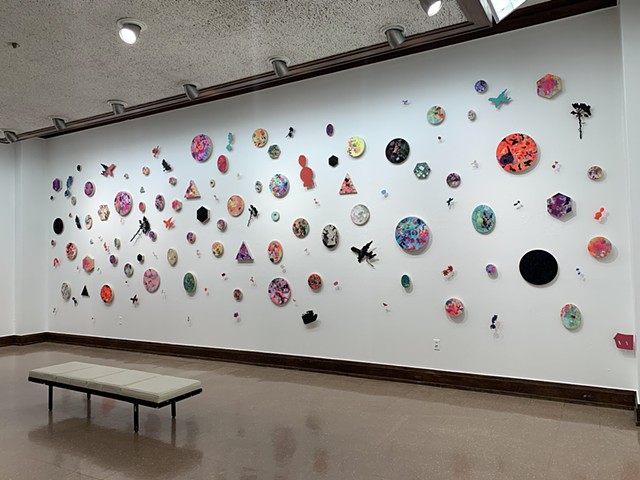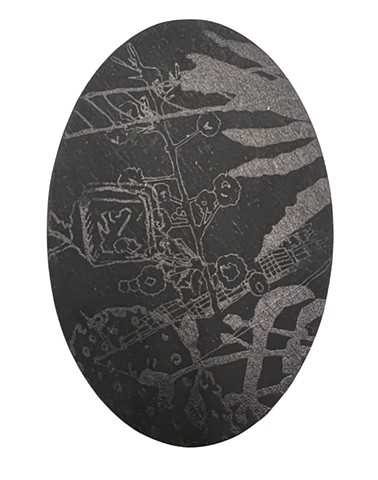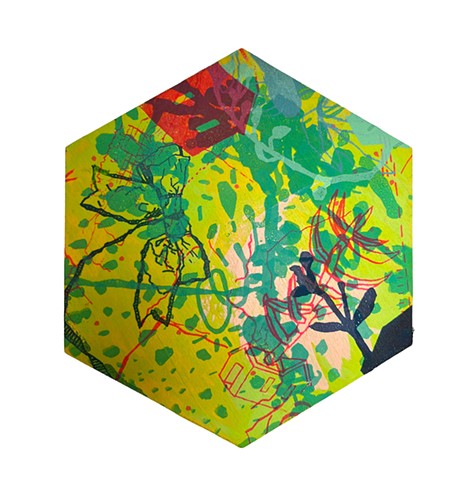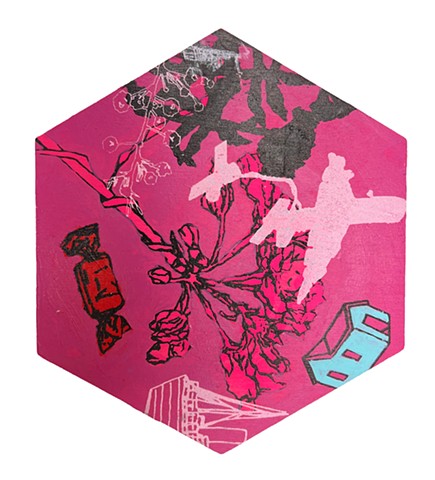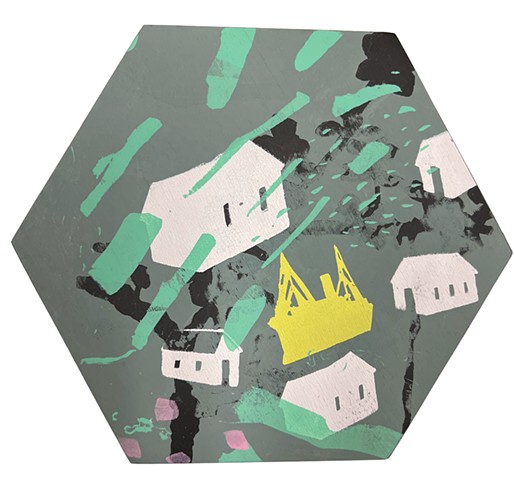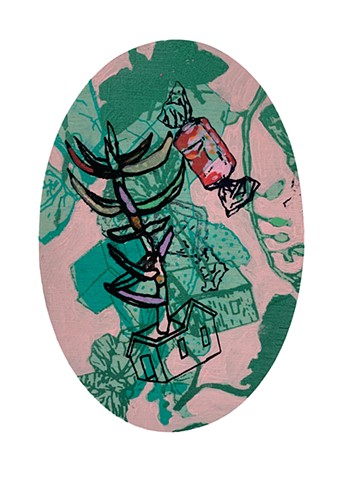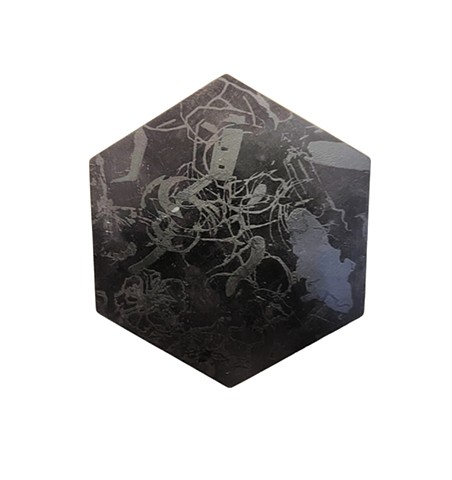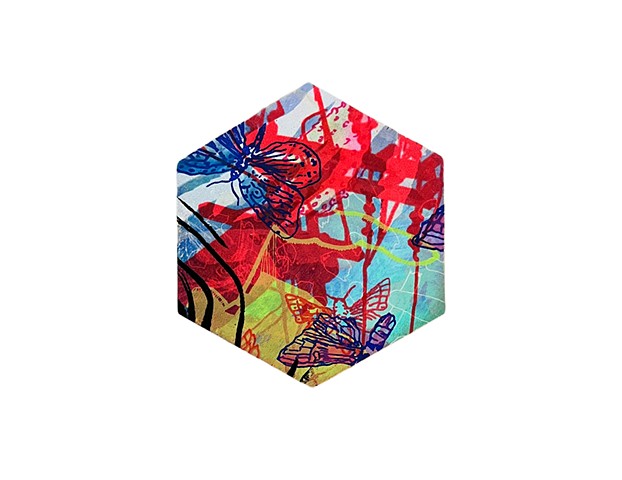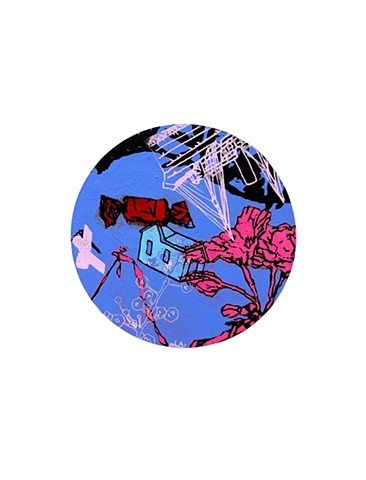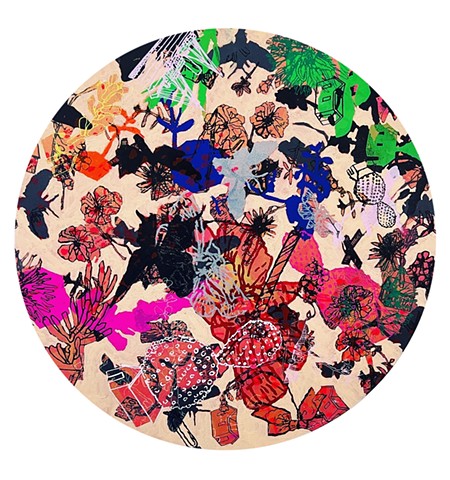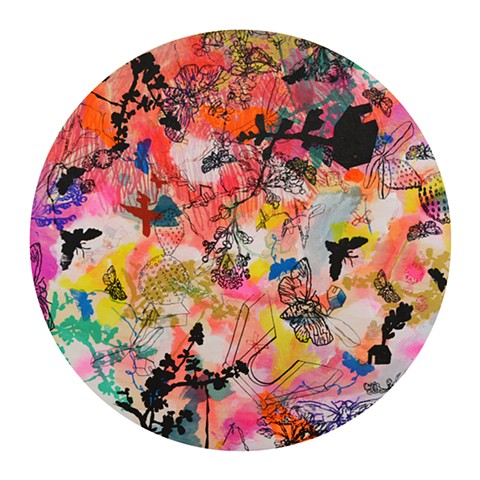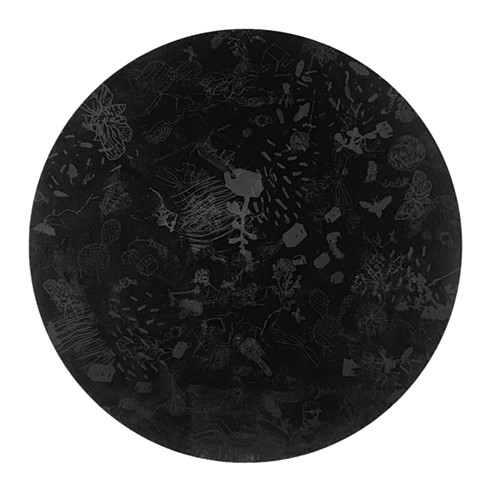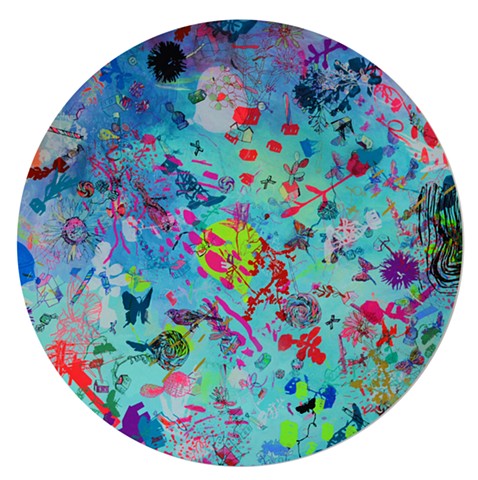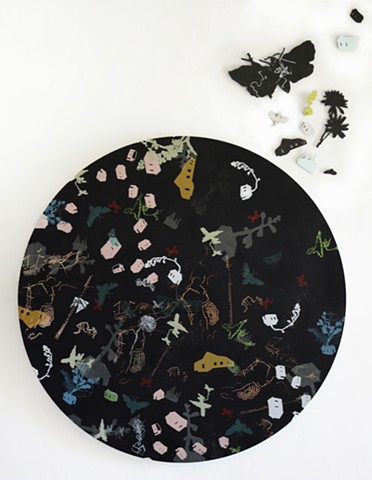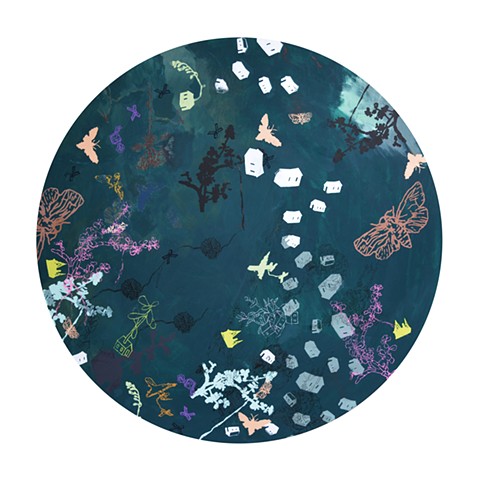"Periphery Series"
Artist Statement — Periphery Series
Isadora Jackson grew up in the Southwest border region, where the interplay of geography, culture, and memory continuously shapes her understanding of belonging. Her work investigates the interrelationships between real and imagined borders, physical, emotional, and psychological, and how they influence the construction of self, home, and place.
Each painting emerges from layered Baltic birchwood panels, hand-built by sculptor Adam Labe. The circular and oval forms mark an evolution in Jackson’s exploration of continuity and transformation. The circle, a universal symbol of wholeness and return, reflects the cyclical nature of life and the interconnectedness of inner and outer worlds. It embodies ideas of time as nonlinear where moments loop back on themselves, echoing memory’s rhythm and the patterns of nature that shape the desert landscape she calls home.
The oval, neither a perfect circle nor a rigid frame, suggests passage, transition, and permeability. It embodies the liminal quality of the borderlands themselves: elastic, resilient, and constantly in motion. The shape evokes the open horizon of New Mexico’s landscape, where sky and earth meet in an unending curve, and where personal and collective histories continuously overlap.
Within these forms, Jackson layers a rich visual vocabulary drawn from the iconography of New Mexico homes, silhouettes, passageways, ladders, and birds’ symbols that oscillate between the literal and the psychological. These images, repeated and transformed through screen-printing, watercolor, gouache, acrylic, spray paint, and light-sensitive pigments, create a “narrative syntax” of memory. A house may sprout new flower growth; a balloon may dissolve into being pulled by a butterfly, each motif a reflection on how memory reshapes place and how place reshapes identity.
Triangular elements within the compositions allude to the “eye of providence,” a symbol that has persisted across cultures as a metaphor for awareness and reflection. Here, it serves as an emblem of inward and outward seeing how we locate ourselves both within and beyond our constructed worlds.
The layered process itself mirrors the layered nature of human experience. Exposed wood grain gives way to translucent paint washes, then to screen-printed symbols and hand-cut birch silhouettes that extend beyond the surface, expanding the work into the surrounding space. These floating elements suggest psychological projections fragments of thought or memory reaching outward, inviting viewers to locate their own associations within the work.
Over time, as light shifts across the surface and pigments subtly change, new connections emerge. The artwork continues to unfold, much like the lived experience of place and memory. Jackson’s intention is to ignite the power of visual awareness an act of re-seeing, re-remembering, and transformation. What we see is not static; it is continuously remade by the act of seeing itself.
